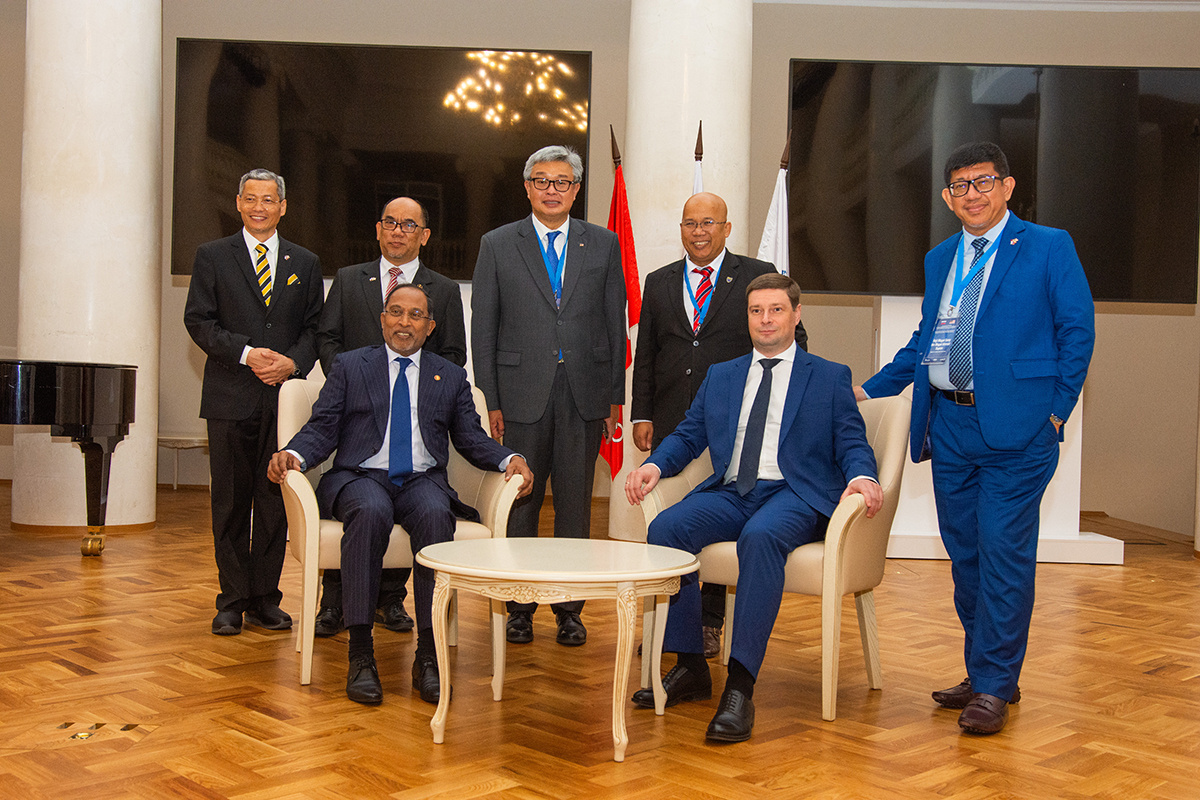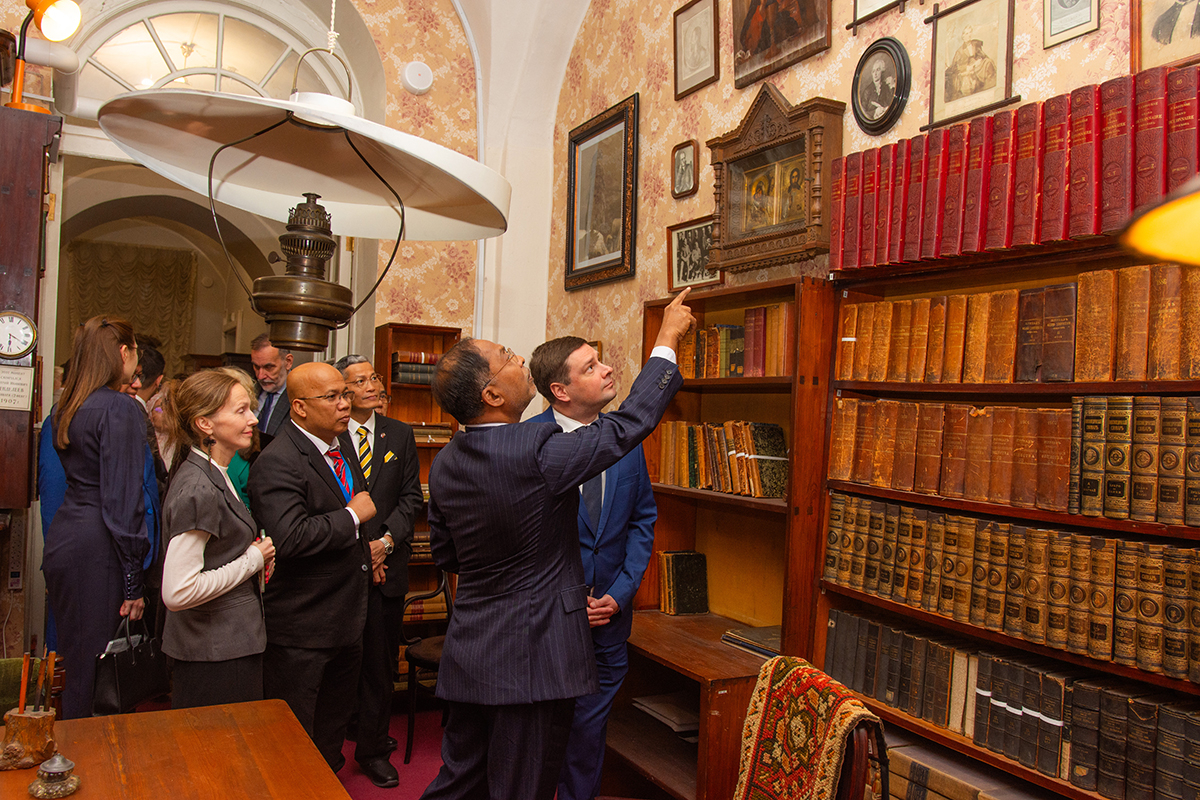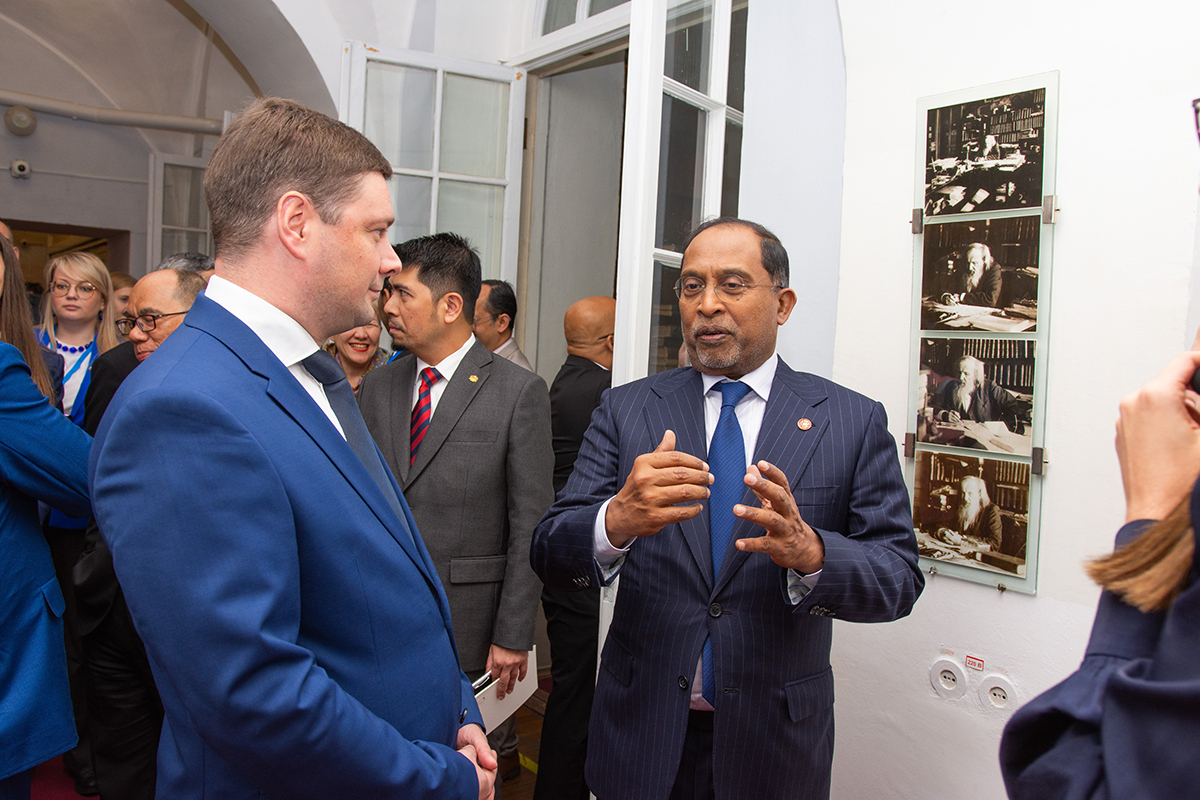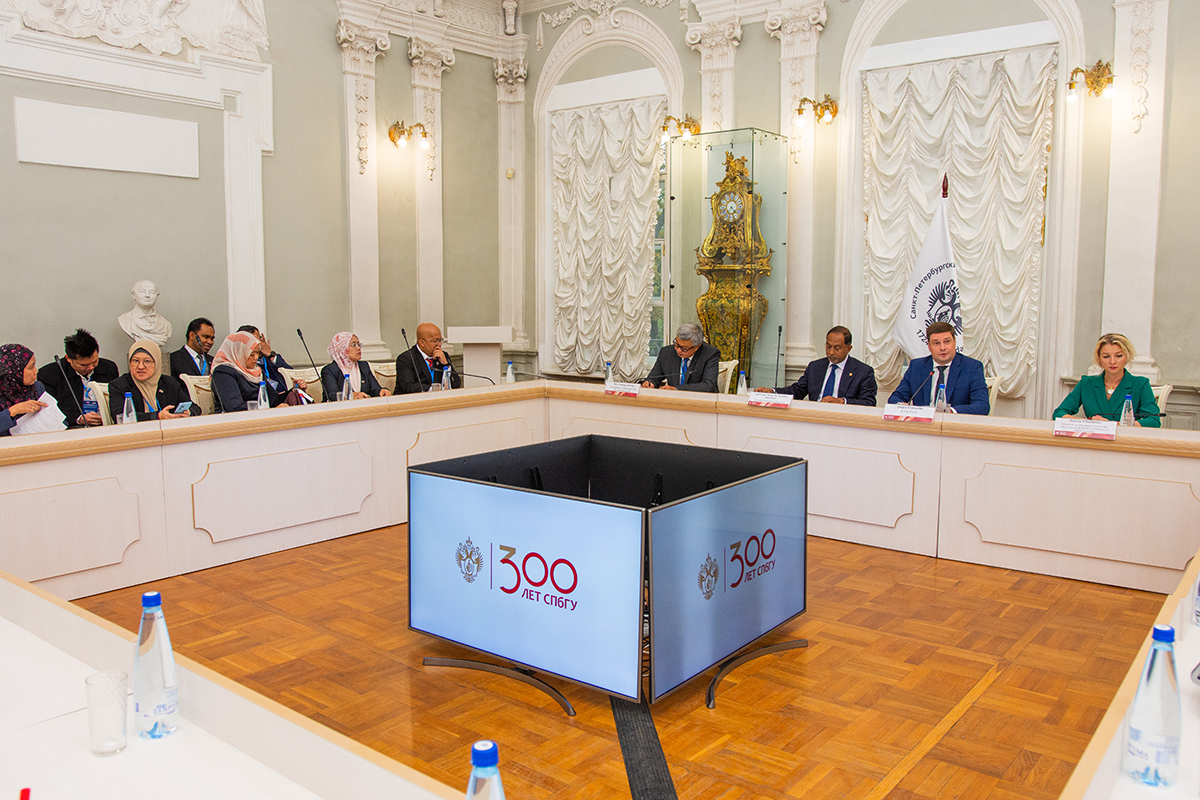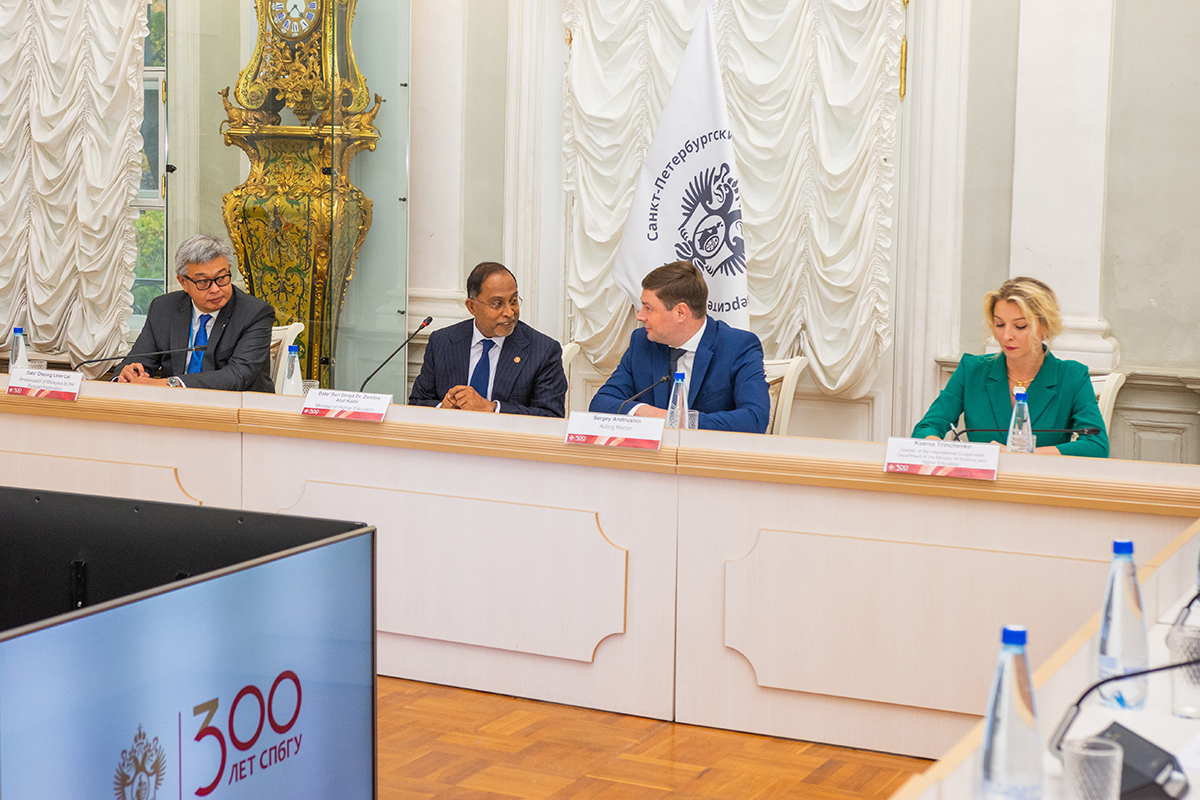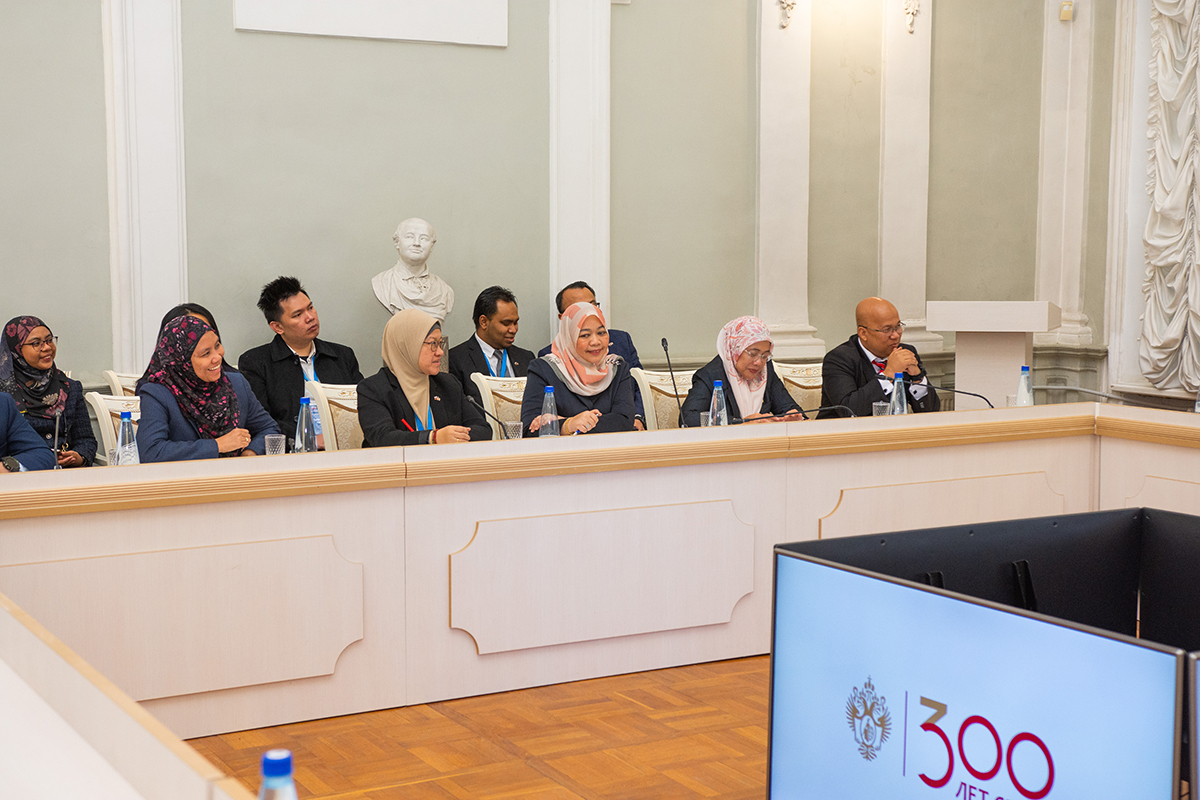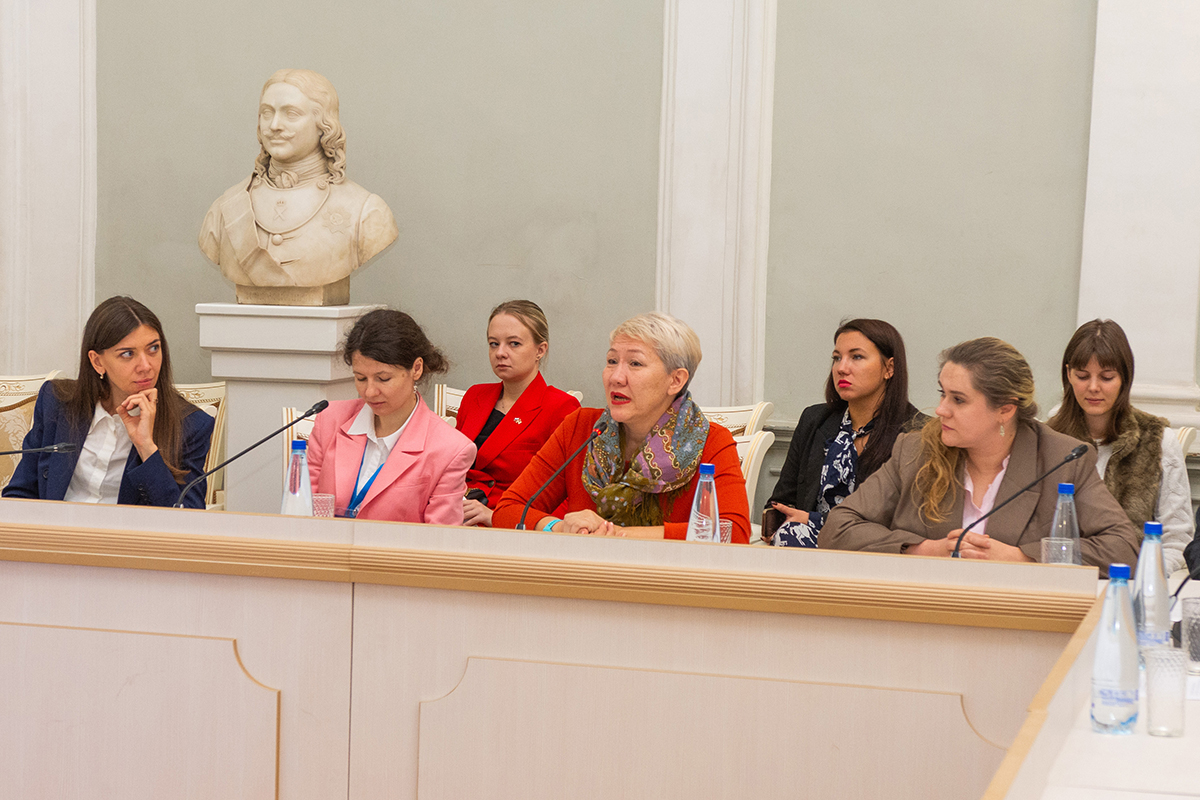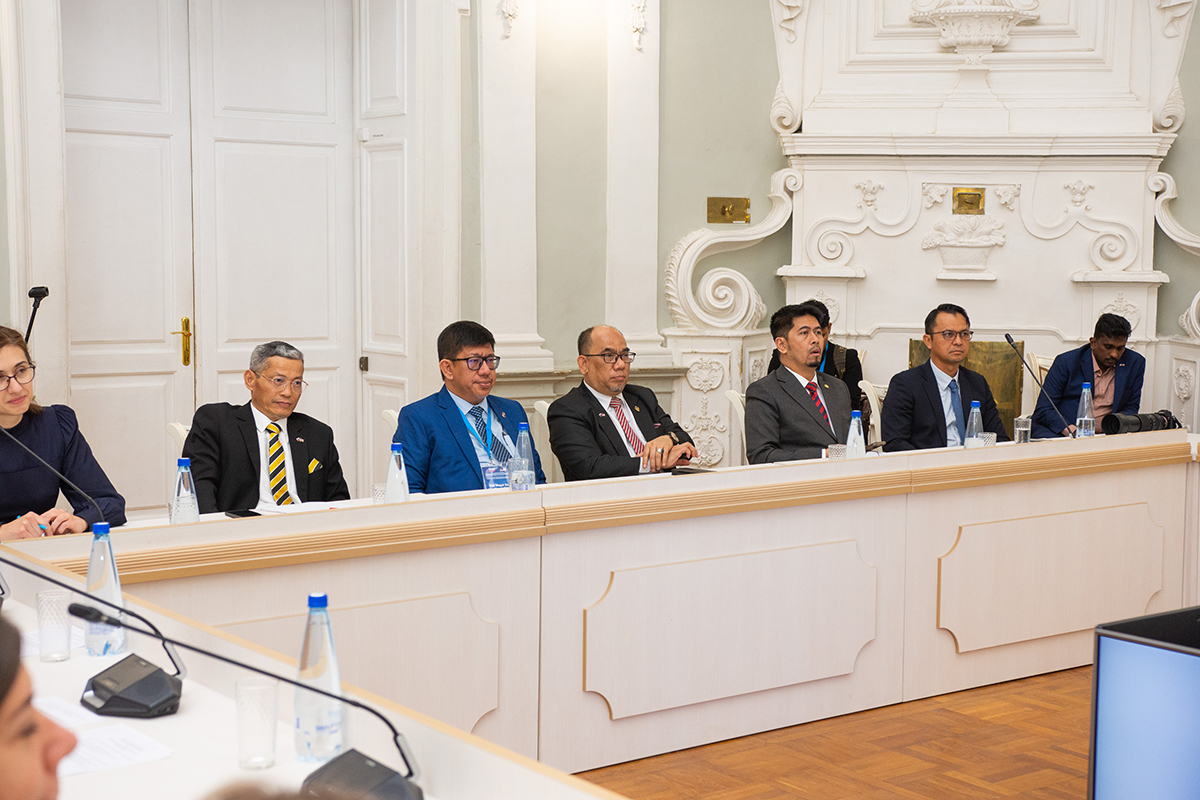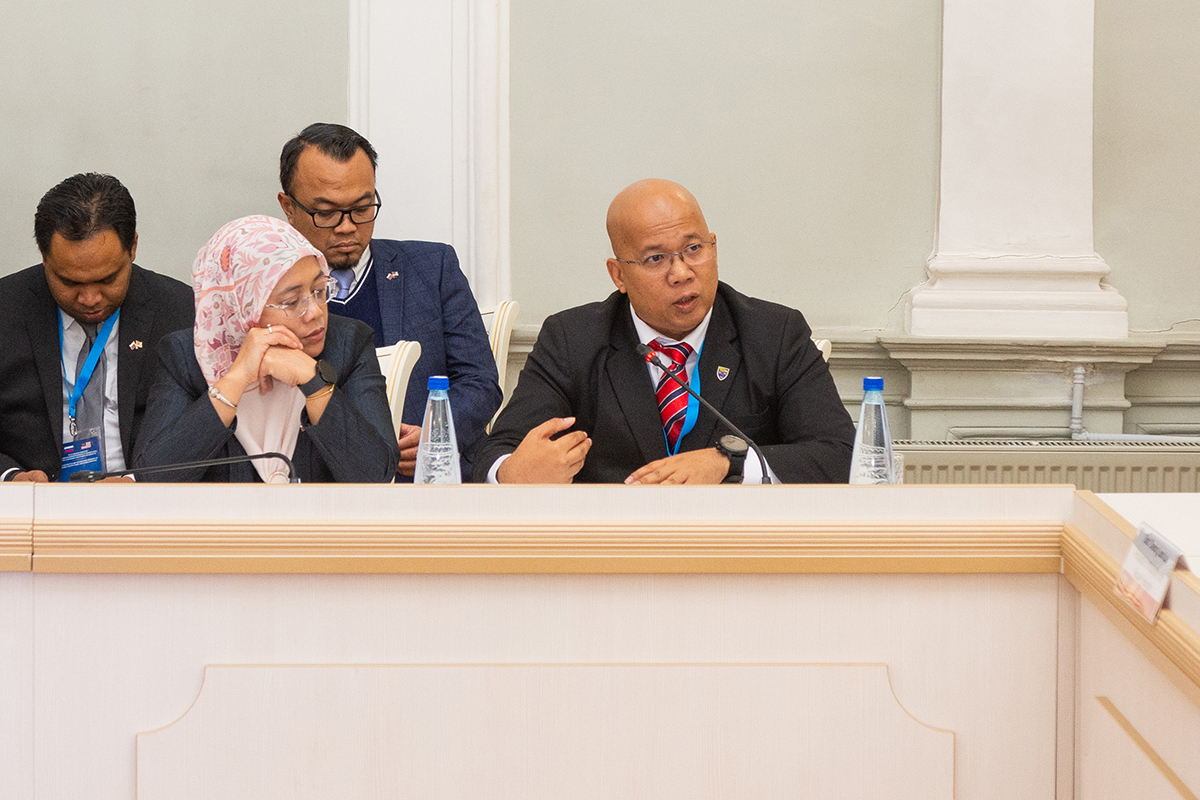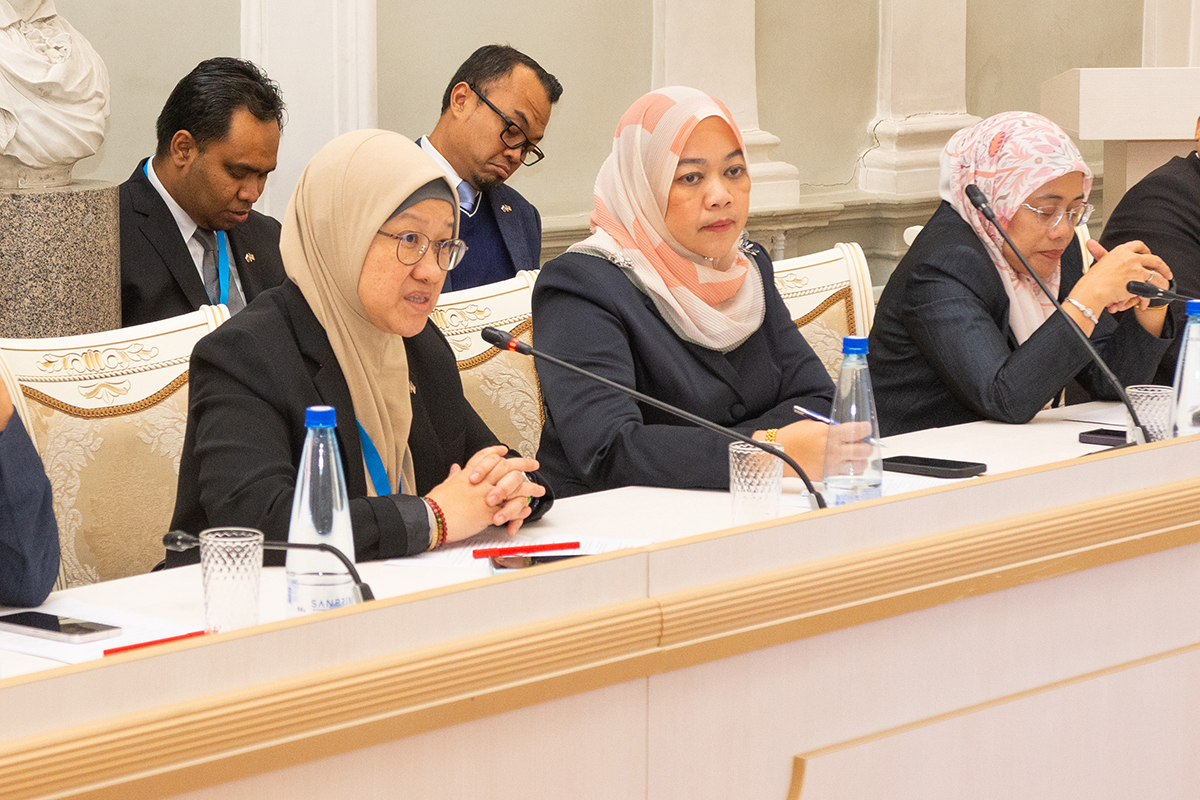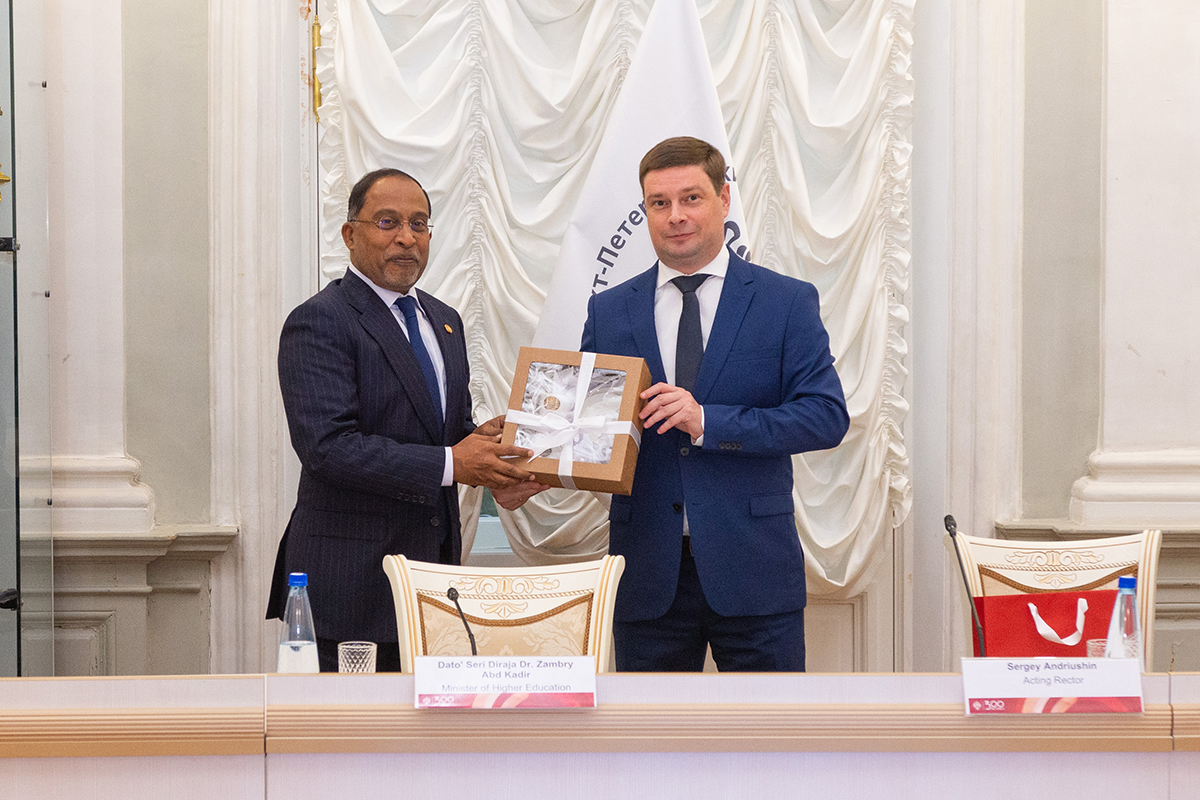Malaysian Minister of Higher Education visits St Petersburg University
Zambry Abdul Kadir, Minister of Higher Education in Malaysia, has visited St Petersburg University to discuss the possibilities of scientific and educational international cooperation. The meeting brought together representatives of the Ministry of Science, Technology and Innovation; the Ministry of Digital; the Ministry of Tourism, Arts and Culture; the Ministry of Education; and the Embassy of Malaysia in the Russian Federation.
On behalf of Rector of St Petersburg University Nikolay Kropachev, Sergey Andryushin, Vice-Rector for International Affairs at St Petersburg University, welcomed Zambry Abdul Kadir, a distinguished guest to St Petersburg University, which celebrates its 300th anniversary this year. The Malay language has been taught at St Petersburg University for 50 years, and we therefore have considerable experience, our students study the language, geography, history and literature of Malaysia, said Sergey Andryushin.
"Today, more than 700 Malaysian students are studying in the Russian Federation, and many of them choose St Petersburg University as the University has a wide range of opportunities and areas of study, covering more than 500 academic programmes. Malaysian students are pursuing programmes not only in philology, but also in mathematics, chemistry, physics, artificial intelligence and other fields of study that are in demand today in the labour market," said Sergey Andryushin. At this event, the Acting Rector of St Petersburg University reported that the University is actively developing cooperation with more than a dozen of the largest universities in Malaysia and proposed to discuss opportunities to strengthen cooperation, academic and cultural ties.
Zambry Abdul Kadir thanked for the invitation to visit the oldest university in Russia and one of the most prestigious universities in the world.
St Petersburg University retains the spirit of the outstanding scientists of the past, including nine Nobel laureates in various fields of knowledge, who contributed to the University’s reputation. As the Minister of Higher Education, I will seek every opportunity to develop scientific and educational cooperation.
Malaysian Minister of Higher Education Zambry Abdul Kadir
Malaysia is home to seven of the top ten universities in the Association of Southeast Asian Nations, said Zambry Abdul Kadir.
Ksenia Trinchenko, Director of the Department for International Cooperation at the Ministry of Higher Education and Science of the Russian Federation, also took part in the meeting at St Petersburg University. "For Minister of Science and Higher Education of the Russian Federation Valery Falkov, it is a high priority to establish interaction between people, and we are building strong ties in the scientific and educational community for many years to come," she said.
Last year, our delegation visited Kuala Lumpur and noted that there is no representative office of St Petersburg University in the capital of Malaysia. In this regard, I would like to draw your attention to St Petersburg University, since it is one of the strongest universities in Russia.
Ksenia Trinchenko, Director of the Department for International Cooperation of the Ministry of Higher Education and Science of the Russian Federation
During the meeting, Sergey Andryushin spoke about the development of international cooperation of St Petersburg University. Today, over 600 universities in more than 80 countries around the world are partners of St Petersburg University. In cooperation with foreign colleagues, 12 joint research centres were opened, and the University’s online courses, which are already being pursued by more than 4 million students, are presented on international platforms, including the China’s largest national massive open online courses platform XuetangX. St Petersburg University continues to expand its network of representative offices. Today, they operate in ten countries. Among them are the following: China, the Republic of Korea, Spain, Greece, Belarus, Moldova, Thailand, Iran, Uzbekistan, and Kyrgyzstan. The next one, as Sergey Andryushin said, may be opened in Malaysia at the University of Malaya, i.e. one of the leading universities in the country. Egypt and Uzbekistan have the University’s branches, and in China there is the joint campus of St Petersburg University and Harbin Institute of Technology. He also spoke about the Online School of St Petersburg University, i.e. an educational project for Russian-speaking schoolchildren from all over the world.
Today, more than 5,000 international students study at the University. As part of this year’s admissions campaign, applications were submitted by applicants from 140 countries, and the competition was 21 applications per place.
St Petersburg University has a special status, which allows it to sign direct cooperation agreements with ministries and government bodies of other countries to ensure more effective interaction with foreign partners, said Sergey Andryushin. Over the past few years, such agreements have been signed with the Ministry of Education of China, the Ministry of Education of Uzbekistan, the Ministry of Foreign Affairs and Culture of Hungary, and the Government of Heilongjiang Province (PRC). In this regard, Sergey Andryushin proposed signing a similar agreement with the Ministry of Higher Education of Malaysia.
Tatiana Ryazantseva, Acting Head of the International Research Support Department at St Petersburg University, presented opportunities of the St Petersburg University Research Park, i.e. a high-tech shared-use centre, which includes 22 resource centres. Currently, about 550 teams conduct research at the University, making more than 50 scientific discoveries every year. The results of their work are reflected in 17,000 publications, more than half of which were published in the field of natural sciences in 2023. Over the past five years, the University scholars, together with their Malaysian colleagues, have published over 65 academic articles.
Tatiana Ryazantseva also spoke about the largest new projects of St Petersburg University, i.e. the Centre for Artificial Intelligence and Data Science, whose tasks include the development of a modular digital platform for strong artificial intelligence of things, and the Advanced Engineering School working in the field of interdisciplinary research, technologies and business processes for the mineral resource complex of Russia.
The parties also discussed the development of cooperation with Malaysian universities and the possibility of opening a representative office of St Petersburg University and a centre for Russian as a foreign language in Malaysia, establishing academic exchanges and conducting joint scientific research.


